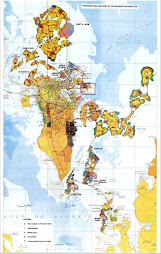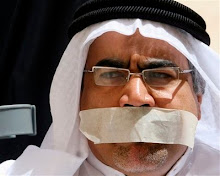Press Release
During Visit, President Bush Should Discuss Lack of Democracy with Middle Eastern Leaders
Washington, D.C.
January 7, 2008
While visiting the Middle East later this week, President Bush should call on leaders in the region to reform their media policies and release jailed journalists, Freedom House wrote today in a letter to the president. The organization also encouraged the president to meet with human rights advocates while in the region, and to speak out in favor of increased religious freedom and women’s rights.
“This is the first time you will have visited most of these countries, and your presence there can have an enormous influence,” wrote Freedom House Executive Director Jennifer Windsor in the letter.
“At a time when freedom is under attack worldwide, we hope that during your trip, you will continue speak for those who are striving for democracy in the Middle East.”
The text of the letter is below.
January 7, 2008
President George W. Bush
The White House
1600 Pennsylvania Avenue, NW
Washington, DC 20500
Dear President Bush:
In light of your upcoming trip to the Middle East, I am writing to request that you use this important opportunity to address some vital concerns about the state of human rights and democracy in the region. Your passionate commitments to brave activists struggling to expand freedom in their countries have given heart to reformers around the globe. At a time when freedom is under attack worldwide, we hope that during your trip, you will continue speak for those who are striving for democracy in the Middle East. As the world’s least democratic region, its leaders have favored short-term security gains over genuine investments in democratic systems. The result has been a serious stagnation of the growth of freedom in the region.
Freedom House is particularly concerned about restrictions placed on the media, as well as limits on women’s rights and religious freedom, in the countries you will be visiting. A leading Saudi blogger, Fouad al-Farhan, recently made headlines when he was arrested in early December for criticizing the government of Saudi Arabia in his blog posts. Meanwhile, in Egypt, Abdel Karim Suleiman is serving a four-year jail term for blog posts that “insulted Islam,” while in Bahrain, Mohammed al-Maskati, an activist and blogger, was sent to prison merely for failing to obtain a registration for his human rights organization.
Like others who have been detained for publishing their views in newspapers or speaking their minds publicly, these men have been arrested simply for speaking out about the lack of freedom in their countries.
Bahrain, Egypt, the Palestinian Territories, Saudi Arabia, and the United Arab Emirates are all ranked “Not Free” in Freedom House’s annual survey, Freedom of the Press.
We strongly urge you to ask for the release of these journalists and activists, as well as to press these countries’ leaders to reform their media policies. In a similar vein, women continue to face institutionalized oppression and discrimination in each of the countries you plan to visit. Freedom of religion also remains a grave concern for the region, particularly in a number of Gulf countries such as Saudi Arabia and Bahrain.
Mr. President, this is the first time you will have visited most of these countries, and your presence there can have an enormous influence. We urge you very strongly to ask the leaders of Saudi Arabia, Egypt and Bahrain to release the jailed bloggers, and call on them to lift their governments’ restrictions on press freedom, religious freedom and women’s rights. We also urge you to meet not only with heads of state, but with civil society activists and human rights advocates as well, to demonstrate that the United States is serious about its support for reform worldwide.
As an ardent supporter of freedom, you know that genuinely representative government is achieved incrementally. Without independent voices that can criticize and endeavor to build the societies they envision—that is, without freedom of speech and of belief for all people—a country can never become democratic.
Sincerely,
Jennifer Windsor
Executive Director
skip to main |
skip to sidebar

خارطة البحرين الجديدة
Facebook Badge
Followers
فسيلة السنكيس
متى ما ظهرت الفسيلة - الصغير من النخل- من فوق سطح الأرض، فمن حقها أن تنمو وان تعانق السماء دون حصار أو مضايقة أو استهداف
حق الفسيلة في الحياة كحق غيرها، من المخلوقات، خاصة وإن كانت دليل أصالة شعب كشعب البحرين
--------------------------------------------------------------
صاحب المدونة: د.عبدالجليل السنكيس
ناشط، كاتب وباحث أكاديمي من البحرين
البريد الإلكتروني: asingace@gmail.com
مدونة اخرى: http://alsingace.katib.org/
هاتف:8179-3966-973+
حق الفسيلة في الحياة كحق غيرها، من المخلوقات، خاصة وإن كانت دليل أصالة شعب كشعب البحرين
--------------------------------------------------------------
صاحب المدونة: د.عبدالجليل السنكيس
ناشط، كاتب وباحث أكاديمي من البحرين
البريد الإلكتروني: asingace@gmail.com
مدونة اخرى: http://alsingace.katib.org/
هاتف:8179-3966-973+
مواقع ووصلات ذات صلة Links of Interest
صور معبرة

خارطة البحرين الجديدة






